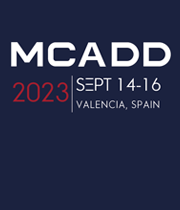Title : Abbott diagnostics: COVID-19 inactivation, nucleocapsid antigen automated immunoassay development, and variant testing for automated and lateral flow assays binaxnow™ and panbio™
Abstract:
Dr. Hemken will describe the viral inactivation of SARS?CoV?2 with the detergent Tergitol 15?S?9. In the process of
developing a prototype immunoassay on the ARCHITECT automated analyzer for detecting the SARS?CoV?2 antigen, we discovered heat inactivation reduced the detection of recombinant full?length SARS?CoV?2 nucleocapsid protein and virus lysate by 66% and 31%, respectively. We examined several non?ionic detergents as inactivation alternatives in the cell culture model and ARCHITECT. Tergitol 15?S?9 can inactivate SARS?CoV?2 in as little as 10 minutes while preserving epitopes on the nucleocapsid protein and boosting the immunoassay signal. Mutations in the nucleocapsid of SARS?CoV?2 may interfere with antigen detection by diagnostic tests. We used several methods to evaluate the effect of various SARS?CoV?2 nucleocapsid mutations on the performance of the Panbio™ and BinaxNOW™ lateral flow rapid antigen tests and a prototype high?throughput immunoassay. Variant detection was also evaluated by immunoblot and BIAcore™ assay. A panel of 23 recombinant nucleocapsid antigens (rAg) was produced that included mutations found in circulating SARS?CoV?2 variants, including variants of concern. All mutant rAg were detected by all assays, at a sensitivity equivalent to the wild-type control (Wuhan strain). Thus, using a rAg approach, we found that the SARS?CoV? 2 nucleocapsid mutations examined do not directly impact antigen detection or antigen assay performance.


